Presenters
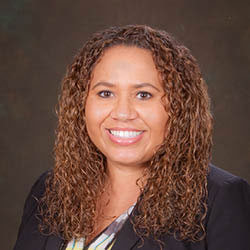 Whitney Anderson-Harrell
Whitney Anderson-Harrell
Chief Community Development Officer at Michigan State University (MSU) Federal Credit Union
Anderson-Harrell began at MSU Federal Credit Union in 2015, and oversees community development and financial education departments as well as the Financial Innovation and Education Center. She also serves as the executive director of the Desk Drawer Fund, a foundation supporting the MSU Federal Credit Union and Oakland University Credit Union communities. She is extremely active in the Greater Lansing and Michigan State University communities. She currently serves as the vice chair of the Lansing Promise Foundation Board, is a member of the Lansing Food Bank Committee, the CIS Advisory Council, Lansing SAVE board, Capital Area United Way board, Lansing School District Magnet Programs Advisory Committee, as as the Board Secretary of the MSU Multicultural Business Program.
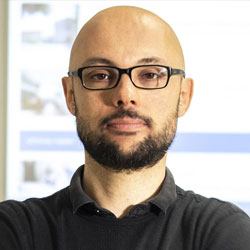 Davide Azzolini
Davide Azzolini
Research Fellow at the Research Institute for the Evaluation of Public Policies of the Bruno Kessler Foundation, Trentino, Italy
Azzolini is interested in public policy analysis and evaluation related to student achievement, educational attainment and immigrant integration. He conducts research related to asset-building programs in education, and he is engaged in the design and implementation of large scale randomized controlled trials on the topics of higher education participation, student achievement and teachers’ digital competencies.
 Ray Boshara
Ray Boshara
Director and Assistant Vice President, Center for Household Financial Stability, Federal Reserve Bank of St. Louis
Boshara is also a senior fellow in the Financial Security Program at the Aspen Institute, where his work focuses on the future of building wealth. Before joining the Fed in 2011, Boshara was vice president of New America, a think tank in Washington, D.C. He has also worked at CFED, a UN agency in Rome, the U.S. Congress, and Ernst & Young. Over the past 25 years, he has advised presidential candidates as well as the George W. Bush, Clinton and Obama administrations. He has testified before the U.S. Congress several times. Boshara has written for The Washington Post, The New York Times, The Atlantic Monthly, the St. Louis Post-Dispatch and Democracy, among other publications, and his media appearances include National Public Radio, CNBC, C-SPAN and Bloomberg News. He serves on many local and national boards and commissions related to financial security, community development, and peace and justice. His book “The Next Progressive Era,” co-authored with Phillip Longman, was published in 2009.
 Diane Brewer
Diane Brewer
Assistant to the Director, Michigan Education Trust (MET)
Brewer started with the Michigan Education Trust (MET) in January 2003. Since then, she has been advising purchasers and students on the use of their MET contracts and interacting with students and universities to make the most of their benefits. As a member of the outreach team, Brewer co-hosts webinars, formal presentations and staffing informational booths to promote MET. As an assistant to the director, she is involved in policy issues, publishing various reports and MET’s Charitable Tuition Program.
 Zibei Chen
Zibei Chen
Postdoctoral Fellow, Center on Assets, Education, and Inclusion and Adjunct Assistant Professor, University of Michigan School of Social Work
Chen’s research areas are financial decision-making and access to financial services among low-to-moderate-income families. She is currently working on research projects related to asset building, children's savings accounts and financial inclusion.
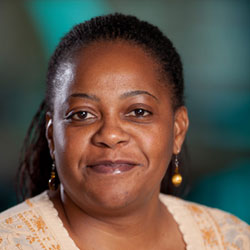 Gina Chowa
Gina Chowa
Director, Global Social Development Innovations, University of North Carolina
Chowa conducts research on global social development, particularly the intersection of economic security, workforce development, social protection and financial inclusion, and its impact on the well-being of vulnerable and marginalized populations in the Global South. She develops and evaluates interventions that aim to promote gainful employment, meaningful financial inclusion, long-term economic security, and improved health and education outcomes. Her research focuses on employing rigorous methodology to examine causal relationships between holistic economic security interventions and well-being of children, youth and their families in low-resource communities. Chowa’s research is informed by more than two decades of global development practice and has informed her teaching in the areas of development theory and practice in global settings, community-based participatory methods, project design and proposal writing, and evidence-based practice in the Global South.
Her current work focuses on nationwide, large-scale experimental demonstrations of economic security interventions and pioneering pilot programs to improve the welfare of marginalized populations including low-income youth, people living with HIV/AIDS, women, poor rural households, and urban slum dwellers. She is a principal investigator of Siyakha a nationwide, cluster-randomized demonstration project that is evaluating the impact of employability and financial capability programs on employment and economic welfare of more than 3,000 youth in all nine provinces of South Africa. She was also the principal investigator of YouthSave Ghana Experiment, another large-scale, cluster-randomized experiment that examined the impact of financial inclusion on the well-being of more than 6,000 youth and their families in eight of Ghana’s ten provinces. Chowa also piloted AssetsAfrica, an innovative intervention study for rural households in Uganda, and Chuma na Uchizi another innovative intervention for people living with HIV in Zambia. She is currently leading groundbreaking research projects in India, Kenya, and the Philippines. Her work has been funded by the MasterCard Foundation, the Ford Foundation, Chronic Poverty Research Centre, University of North Carolina (UNC), National Institutes of Health and UNC Center for AIDS Research, and UNC School of Social Work.
 José Cisneros
José Cisneros
Treasurer, San Francisco
Cisneros is the elected treasurer for the City and County of San Francisco. As treasurer, he serves as the city’s banker and chief investment officer, managing all tax and revenue collection for San Francisco. In office since 2004, Cisneros has used his experience in the tech and banking industries to enhance and modernize taxpayer systems and successfully manage the city’s portfolio through a major recession.
Cisneros believes that his role of safeguarding the city’s money extends to all San Francisco residents, and continues to expand his role as a financial educator and advocate for low-income San Franciscans through award-winning initiatives like the Financial Justice Project, Kindergarten to College, and Bank On San Francisco. Cisneros is co-chair of the Cities for Financial Empowerment Coalition and previously served as vice chair on the President’s Advisory Council on Financial Capability for Young Americans.
 Margaret Clancy
Margaret Clancy
Policy Director, Center for Social Development and Director of College Savings Initiative and SEED for Oklahoma Kids, Washington University in St. Louis
Clancy is responsible for design and leadership of large-scale policy demonstrations, including the SEED for Oklahoma Kids research experiment. Since 2001, she has been researching features of 529 college savings plans as a model for inclusive asset-based policy, and is an expert on progressive 529 policies in the states. She also led the Account Monitoring research project in SEED, a multi-year, national children and youth savings policy and research initiative, and the American Dream Demonstration, the first national study of IDAs. Prior to joining Center for Social Development, Clancy administered corporate 401(k) and defined benefit pension plans for over 10 years, working as a vice president of a large trust company.
Luke Connell
Executive Director, SmartSAVER
Connell has been engaged with the SmartSAVER program since 2011. He has filled the roles of outreach manager and partnership manager, before assuming the role of executive director in 2018. After studying International Development Studies at Saint Mary's University in Halifax, Luke spent time working for Right To Play. Through his experience with SmartSAVER he has developed a strong grassroots approach to promoting the value of education savings. Luke currently sits on the Winnipeg Promise steering committee.
SmartSAVER is an initiative of The Omega Foundation that seeks to strengthen lower-income Canadian families' ability to save for their children's post-secondary education using Registered Education Savings Plans (RESP) and the Canada Learning Bond (CLB).
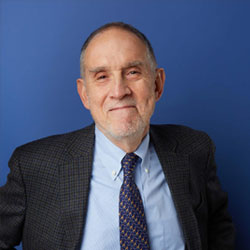 Frank DeGiovanni
Frank DeGiovanni
Former Director, Financial Assets Unit, Ford Foundation
DeGiovanni retired from the Ford Foundation in April, 2016. At the time of his retirement, he was senior advisor to the president of the foundation, advising the foundation’s regional offices on strategy development. Previously, he served as director of the Financial Assets unit at the foundation, where he led worldwide efforts to build financial assets for disadvantaged people through grants and program-related investments. This work focused on savings, individual asset development, rural livelihood development, and consumer financial services, as well as on program-related investments to organizations that use capital to achieve their charitable mission. He currently consults to nonprofit organizations and serves on the board of the The BOMA Project, the New Hampshire Endowment for Health, and Trickle Up.
 Charles Desmond
Charles Desmond
Chief Executive Officer, Inversant
In January 2016, Desmond, past-chair of the Massachusetts Board of Higher Education and a policy advisor to former Governor Deval Patrick, was appointed chief executive officer of Inversant, the largest parent-centered children's savings account initiative in the Commonwealth. Under Desmond’s leadership, Inversant has moved to the forefront of the Children’s Savings Account (CSA) movement by establishing relationships in both the private and public sector. In his short tenure with Inversant, he has helped establish new programs across the state, as well as being instrumental in spearheading a five-city partnership with the Massachusetts State Treasurer’s Office to launch SoarMA, a program that helps parents of seventh-grade students to open CSAs. More recently, he played an instrumental role in the launch of SeedMA Baby, Massachusetts’ first statewide college savings account program through which, beginning January 1, 2020, every child born or adopted as a Massachusetts resident will be eligible for a $50 deposit into a 529 college savings account.
A Fulbright Scholar, Desmond served from 2002 to 2008 as executive vice president of the Trefler Foundation, a nonprofit dedicated to improving educational opportunities and success for Boston's urban youth. Prior to Trefler, Desmond worked for more than 30 years at the University of Massachusetts Boston, with a focus on student affairs and community collaboration.
Desmond is a senior fellow at the New England Board of Higher Education and has been active in a range of civic and community organizations, including service as President of AARP Massachusetts and as a member of the Review Committee for the Broad Prize in Urban Education, Board of Governors for the Northeast and Islands Regional Educational Laboratory at Brown University, Brown University Design Group/Annenberg Institute for School Reform, and Cambridge College Board of Trustees. He was the co-chair and executive director of the Urban Educators Corps and is a past president of the Massachusetts Educational Opportunity Association. He has been active with the American Council on Education and the Council for Opportunity in Education, among other organizations. He is the recipient of three honorary doctorates and numerous honors and awards from local and national organizations.
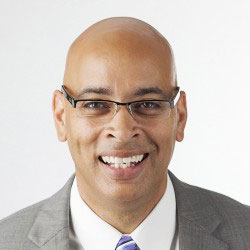 William Elliott III
William Elliott III
Professor of Social Work, Director, Joint Doctoral Program in Social Work and Social Science, University of Michigan, Founding Director AEDI
Elliott is a leading researcher in the fields of college savings accounts, college debt, and wealth inequality. Shaped by his personal roots in poverty in a small steel mill city in Pennsylvania, Elliott pursues is challenging individual beliefs and cultural values that surround funding for college, student debt, inequality, systemic patterns of poverty, and educational justice. Being refined in poverty allows him to approach questions in his research differently.
Some of the college savings account programs he is currently conducting research on are the Oakland Promise in California, Prosperity Kids in New Mexico, K2C in San Francisco, Promise Indiana, and the Harold Alfond College challenge in Maine. He has published in journals such as Economics and Education Review, Journal of Poverty, Race and Social Problems, Educational Policy; his most recent book is “Making Education Work for the Poor: The Potential of Children’s Savings Accounts.” His research adds fuel to debates about how to imagine ways of financing college other than by student debt. He believes that there are real possibilities and his research bears this out. He asks if college education can truly be the great equalizer it is meant to be when wealth inequality remains the defining feature of American society. He calls for the next great wealth transfer in America. The premise behind Professor Elliott’s research is that there are better, more effective, and more just ways of financing college and delivering on the promise of the American dream; people must simply be shown that more is possible.
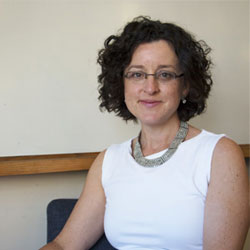 Amanda Feinstein
Amanda Feinstein
Project Director for College Savings Initiatives, Oakland Promise
Feinstein is the director of the Oakland Promise Brilliant Baby program which supports the early development and health of babies in MediCal eligible families by offering financial empowerment services for parents and establishing college savings accounts for infants, seeded with $500. Brilliant Baby is the early childhood component of the Oakland Promise, which seeks to prepare all Oakland children with the expectations, skills and resources to be successful in college and the career of their choice. Prior to this role, Feinstein was the senior program officer for economic security at the Walter and Elise Haas Fund in San Francisco, where she designed and implemented the foundation’s strategies to help marginalized communities build financial assets and secure quality jobs. In this capacity she was a founding steering committee member of the national Asset Funders Network and its Bay Area chapter. Feinstein has held leadership positions at the San Francisco Human Services Agency and in the nonprofit sector.
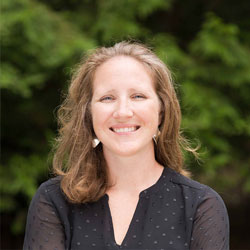 Terri L. Friedline
Terri L. Friedline
Associate Professor of Social Work, University of Michigan, AEDI
Friedline's research focuses on financial system reform and consumer protections to ensure that people and communities have access to safe and affordable financial products and services. Basic financial products like checking and savings accounts are essential for conducting a wide range of transactions, including securing affordable credit, obtaining auto insurance, and paying bills and utilities. People and communities that cannot access and use basic financial products pay higher costs to participate in today's capitalist economy. It is within this context that she conducts research to envision, redefine, and move financial and economic justice — particularly with people and communities that have been historically excluded from and marginalized by the financial system. Her most recent research, Mapping Financial Opportunity, investigates the financial system from a macro or structural perspective and the racialized ways that banks, credit unions, and payday lenders invest in communities. Friedline's research has been published in top journals such as Social Service Review, Social Science Research, and the Journal of Consumer Affairs, and covered by national media including The Washington Post, The Huffington Post, Bloomberg Business News,CBS News, and TIME. She conducts this research as an associate professor at the University of Michigan School of Social Work, faculty director within the Center on Assets, Education, and Inclusion, and research fellow at New America in Washington, D.C.
 Robert Friedman
Robert Friedman
Founder and Chair Emeritus, Prosperity Now
Friedman is the founder and chair emeritus of the Board for Prosperity Now, a 39- year old nonprofit dedicated to enlarging economic participation and prosperity for all. Friedman helped create the U.S. microenterprise, saving and asset building practice, policy and markets, and the international enterprise development and child savings fields. His third book, “A Few Thousand Dollars: Sparking Prosperity for Everyone,” was released by the New Press in October, 2018. In it, he argues that everyone needs a nest egg of at least a few thousand dollars to believe in and have a real economic future ‒ as an entrepreneur, educated worker, homeowner, saver and investor ‒ and that we could make this possible for everyone without spending another dollar, just by investing our wealth building tax incentives in everybody rather than just the lucky wealthy few.
Friedman is based in San Francisco and serves on several boards, including Ecotrust, the Rosenberg Foundation, The San Francisco Foundation and the Friedman Family Foundation. He is a past board member of Levi Strauss & Co.
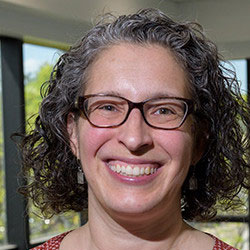 Teresa Gillotti
Teresa Gillotti
Director, Washtenaw County Office of Community and Economic Development
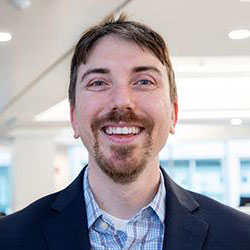 Patrick Hain
Patrick Hain
Principal Associate, Financial Empowerment, Institute for Youth, Education, and Families, National League of Cities
Hain is the principal associate for the Financial Empowerment team in the Institute for Youth Education and Families at the National League of Cities. In his role, he works with city leaders to address their resident's financial issues by supporting the implementation of innovative programs and the advancement of policies. One of his primary responsibilities is advising leaders on the design, implementation, launch, and expansion of children’s savings accounts. Prior to his position at NLC, Mr. Hain advanced evidence-based programs and pay-for-success financing at the Social Innovation Fund. He served as a program officer at the Annie E. Casey Foundation, where he supported programs and policies that allowed workers to be active parents and successful workers. He earned a bachelor’s degree at Eastern Michigan University and a master’s degree from Northwestern University.
 Eric Hedberg
Eric Hedberg
Senior Research Scientist, NORC at the University of Chicago
Hedberg's current area of research includes investigating the design of education interventions. He was CO-PI with Larry Hedges on an IES project "State-specific Design Parameters for Designing Better Evaluation Studies" which sought to use state longitudinal data systems to provide important experimental design parameters.
His current projects include an evaluation of the Oakland Promise’s Brilliant Baby program, and the College Knowing & Going Initiative funded by the Helios Education Foundation. The initiative employs social network data to determine the associations between the social lives of high school students in Arizona and college matriculation.
Hedberg is also active in family research. He wrote his dissertation on intergenerational exchange and used multilevel models to investigate dyadic exchanges between respondents and their family members.
He has authored several methodological pieces that have appeared in education, medical, and criminological journals. His latest writing is a SAGE “little green” book on power analysis, released January 2018.
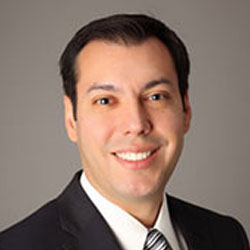 Marc Hernandez
Marc Hernandez
Principal Research Scientist, NORC at the University of Chicago
Hernandez is a principal research scientist and director of the Early Childhood Research and Practice Collaborative of NORC at the University of Chicago. His research and evaluation program focuses on identifying, developing and evaluating programs interventions, tools, technologies, best practices, and policies designed to improve educational outcomes for disadvantaged children, early in their lives. He has worked extensively in home, preschool, and elementary school settings, with children, parents, educators and administrators. Through the Collaborative, Hernandez partners closely with researchers, practitioners, nonprofits, foundations and government agencies to develop and evaluate early-childhood programs, interventions, curricula, tools and assessments. Utilizing a whole-child, 360-degree approach to development, his work aims to produce tools and knowledge that will help illuminate what continua of support are necessary to close the opportunity gap.
 Martha J. Kanter
Martha J. Kanter
Executive Director, College Promise Campaign
Kanter leads the College Promise Campaign, a national initiative to increase college access, affordability, quality and completion in American higher education, starting in America’s community colleges. She is also a senior fellow at New York University Steinhardt Institute for Higher Education Policy. She specializes in policy efforts to identify and apply innovative, evidence-based education interventions, financing models, and behavioral incentives to raise America’s high school and college graduation rates. From 2009-2013, Kanter served as the U.S. Under Secretary of Education, overseeing all federal postsecondary statutory, regulatory, and administrative policies and programs, including the $175B annual federal student aid programs, higher education, adult education, career-technical education, international education, and 6 White House Initiatives. From 1993-2009, Kanter was president of De Anza College and then chancellor of the Foothill-De Anza Community College District in Silicon Valley, California.
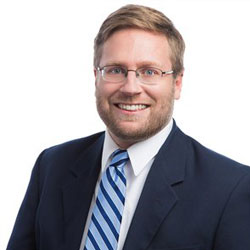 Justin King
Justin King
Independent Consultant
 Clint Kugler
Clint Kugler
College, Career and Community Initiatives Vice President, Indiana Youth Institute
Kugler recently joined the Indiana Youth Institute (IYI), where he serves as the college, career and community initiatives vice president. He is responsible for activating and supporting community-driven strategies designed to increase students’ completion of education beyond high school. This includes oversight of IYI’s college and connections programs as well as the strategic expansion of Promise Indiana, the research-based college and career readiness initiative he co-founded in 2013. To date, Promise Indiana has activated 25 Indiana counties, and it plans to add 18 additional counties by 2021. Prior to the joining IYI in 2019, Dugler worked for 20 years for the YMCA.
Carol Lei
Program Manager, Kindergarten to College
Lei leads San Francisco’s Office of Financial Empowerment (OFE) Kindergarten to College (K2C), the largest, publicly funded children’s savings account program in the country. Prior to K2C, she served as programs director for Parents for Public Schools of San Francisco, helping thousands of families enroll in and engage with the public school system. She has also managed several special projects for the City and County of San Francisco, worked in the technology sector, and operated her own consultancy supporting management, team development, and diversity in the workplace.
 Andrea Levere
Andrea Levere
President, Prosperity Now
Levere has led Prosperity Now (formerly CFED) as its president since 2004. Prosperity Now is a private nonprofit organization with the mission of ensuring that everyone has the opportunity to gain financial stability, build wealth and achieve prosperity.
Prosperity Now designs and operates major national initiatives that aim to integrate financial capability services into systems serving low-income people, build assets and savings, and advance research and policies that expands economy mobility for all. It operates the Prosperity Now Community, comprised of nearly 24,000 members who advocate for asset-development and protection policies, and operates the Racial Wealth Divide initiative to strengthen the capacity of nonprofits of color and advance policies that promote racial equity.
In 2013 President Obama appointed Levere to the National Cooperative Bank Board of Directors to represent the interests of low-income consumers. In 2017, Levere was appointed to the Community Advisory Council of the Federal Reserve System and currently serves as chair. She has been the chair of ROC USA (Resident Owned Communities USA), a national social venture that converts manufactured home parks into resident owned cooperatives since its founding in 2008. She is also member of the FDIC’s Committee on Economic Inclusion, and Morgan Stanley’s Community Development Advisory Board.
 Shira Markoff
Shira Markoff
Associate Director, Children's Savings, Prosperity Now
Markoff manages Prosperity Now’s work to support the development and operational success of children’s savings account programs through providing technical assistance, engaging in state and local advocacy, and developing resources for the field. Previously, Markoff served as associate director on Prosperity Now’s Savings & Financial Capability team, for which she oversaw a portfolio of programs around children’s and adults’ savings and financial capability integration.
Prior to joining Prosperity Now, she worked as program manager for Seedco, where she supported community-based organizations across New York City in implementing programs that assisted low-income families in receiving tax credits and accessing government benefits such as SNAP and Medicaid.
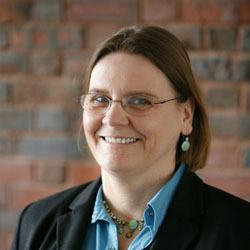 Tatjana Meschede
Tatjana Meschede
Associate Director at the Institute on Assets and Social Policy (IASP) and Senior Lecturer at Brandeis University, Heller School for Social Policy and Management
Meschede manages an IASP project on financial well-being and risk of diverse U.S. population groups with a specific focus on racial wealth disparities. She presents and writes extensively on racial disparities in assets and wealth, housing, middle-class status, and among seniors, and is the lead or co-lead author on many IASP publications, such as reports in the “Leveraging Mobility,” "Living Longer on Less," and "By a Thread" series. More recently, Meschede was selected as visiting scholar at the Boston Federal Reserve Bank, where she is now analyzing the National Assets Score Card of Communities of Color (NASCC) data set, which provides new information on local race and ethnic wealth holdings,
Meschede also leads IASP’s research and evaluation projects on homelessness, including a statewide workforce development initiative targeting homeless parents and an evaluation of the Housing First for Homeless Families Program on Massachusetts' South Shore. For over two decades, she has engaged in research on homelessness, collaborating with Massachusetts state departments (DHCD, DTA, DPH,) and local communities, and she is the author of numerous reports and publications.
 Robert Nathenson
Robert Nathenson
Research Specialist, University of Pennsylvania's, Consortium for Policy Research in Education (CPRE)
Nathenson is an applied quantitative researcher with expertise leading projects using advanced econometric techniques in postsecondary education, K-12 education and health. His research focuses on questions of access, opportunity and mobility for low-income, minority, mental health and immigrant populations, including the geography of opportunity, student learning trajectories and access to healthcare services. He has noted expertise in experimental and quasi-experimental design, as well as in the execution of rigorous econometric and statistical techniques to applied policy questions. At CPRE, he designs and manages experimental and non-experimental projects across the pre-K to postsecondary spectrum.
Nathenson is principal investigator of the evaluation of the Pennsylvania Treasury Department's college savings account initiative. He is the quantitative lead on a National Science Foundation grant of the Ongoing Assessment Project, a formative assessment mathematics teacher professional development program. This work is joint with the School District of Philadelphia. He has led research on how behavioral science techniques can help improve survey response rates, conducts a higher education podcast series, and has published widely on such health policy topics as access to care for Spanish-speakers and the impact of state and federal policy on mental healthcare utilization.
 Ellen O’Neil
Ellen O’Neil
College Kids Savings Account Coordinator for the Office of Financial Empowerment for the City of St. Louis
Prior to her position at College Kids, O’Neill served as a project manager for the Center for Social Development. O’Neill received her Master of Social Work degree in 2017 from the Brown School of Social Work at Washington University in St. Louis. During her time at the Brown School, O’Neill served on the Community Development Policy team at the Federal Reserve Bank of St. Louis, where she devised and conducted a community- based system dynamics study of underserved and unbanked communities. Additionally, O’Neill has worked closely with St. Louis-based Prosperity Connection, focusing on issues of financial health and well-being for underserved populations.
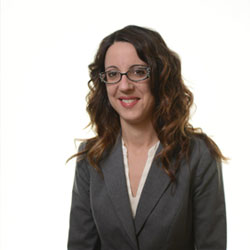 Amber Paxton
Amber Paxton
Director, Office of Financial Empowerment, City of Lansing
Paxton worked for several years leading the Junior Achievement office serving Genesee, Lapeer and Shiawassee Counties, bringing basic financial education to over 300 K-12 classrooms per year. She also spent several years in the fund development field at Kettering University, formerly GMI, in order to develop the skill of sustaining beneficial programs in addition to managing them. Paxton led the Asset Independence Coalition, overseeing free income tax preparation sites and the City of Lansing’s newly established Office of Financial Empowerment, and to oversee Michigan’s first Financial Empowerment Center. In its first five years, the Lansing Financial Empowerment Center delivered FREE one-on-one financial counseling to over 4,100 clients, who reduced their cumulative debt by more than $7.8 million and increased their cumulative savings by over $650,000. Paxton has co-chaired the Cities for Financial Empowerment Coalition, which brings together pioneering municipal governments from across the country that have begun to use their power and positions to advance innovative financial empowerment initiatives.
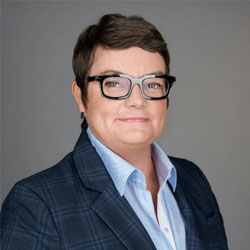 Kris Perry
Kris Perry
Deputy Secretary, California Health and Human Services Administration for Early Childhood Development and Senior Advisor to the Governor on Implementation of Early Childhood Development Initiatives
Perry is a nationally recognized advocate for children who began her career as a child-abuse investigator and spent nearly 25 years as a social worker and director of social service programs. In 2005, she was named executive director of First 5 California. Seven years later, she moved to Washington, D.C., as executive director of the First Five Years Fund, a national bipartisan advocacy group that supports the education and care needs of low-income children from birth through age 5. Most recently, she served as president of Save the Children Action Network (SCAN). In 2009, Perry stepped into the national spotlight as the lead plaintiff in the historic legal challenge that overturned California's ban on gay marriage. That case went all the way to the U.S. Supreme Court, which legalized same-sex marriage in 2013. In 2017, Perry received the Social Sciences Distinguished Alumni Award from University of California, Santa Cruz and was honored at a public reception in her honor. Perry and her wife, Sandy Stier, are coauthors of the memoir “Love on Trial: Our Supreme Court Fight for the Right to Marry.”
 Colleen Quint
Colleen Quint
President & CEO of the Alfond Scholarship Foundation
The Alfond Scholarship Foundation (ASF) awards a $500 grant at birth to every Maine resident baby for their future education after high school. By 2018, the program had invested over $40 million for more than 80,000 Maine children. ASF also works with families and partners across the state to increase student aspirations and outcomes through educational messaging, and by encouraging family savings for college. Prior to her tenure at ASF, Quint was the founding executive director of the Senator George J. Mitchell Scholarship Research Institute. She holds a bachelor’s from Bates College and a JD from the University of Maine School of Law. She serves on the Board of Directors of the Nellie Mae Education Foundation, the Board of Androscoggin Head Start and the Tree Street Youth Advisory Council.
 Carl Rist
Carl Rist
Senior Director, Children's Savings & Senior Advisor, Asset Building, Prosperity Now
Rist has spent over 20 years at Prosperity Now. He is currently the senior director for children’s savings and a senior advisor for asset building. Previously, Rist launched and directed the 1:1 Fund, an online fundraising and marketing tool that helps CSA programs raise matching funds. He directed the SEED (Savings for Education, Entrepreneurship and Downpayment) Policy and Practice Initiative (2003-2009) and helped to design and implement a program to offer college savings accounts to students from the KIPP network of charter schools. Rist is the co-author of “Hope in Concrete Form: Children’s Savings Accounts and the Save and Invest Economy” and “From Piggy Banks to Prosperity: A Guide to Implementing Children's Development Accounts and Children's Savings Accounts: A State Policy Sourcebook.”
Rist led the development and design Prosperity Now's Scorecard, a comprehensive tool that examines wealth, poverty and financial security across the nation. He worked with state task forces in Delaware and Pennsylvania to develop recommendations for helping citizens build and protect assets. He has served in an advisory capacity for a number of state-level IDA coalitions.
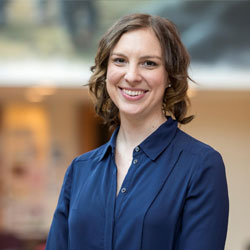 Terri Sabol
Terri Sabol
Assistant Professor, Human Development and Social Policy, Northwestern University
Sabol is an assistant professor in human development and social policy in the School of Education, and social policy and faculty fellow at the Institute for Policy Research at Northwestern University. As a developmental psychologist, she leads the Development, Early Education and Policy (DEEP) Lab at Northwestern which applies developmental theory to pressing social policy issues that affect low-income children and families. Sabol’s research focuses on two key policy areas: (1) assessing and improving early childhood education; and (2) increasing families’ human capital. Sabol is currently involved in an evaluation of the Oakland Promise Kindergarten to College (K2C) evaluation and has developed a new tool- the Child Assessment Tool- electronic (CHAT-E) to assess children’s understanding of family, school and college savings accounts.
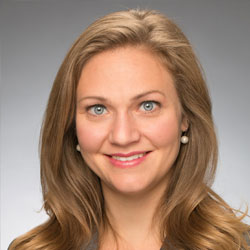 Olivia Schultz
Olivia Schultz
Business Services Director, my529
Schultz supports my529’s executive director to evaluate business pursuits and lead strategic opportunities for Utah’s $13 billion 529 college savings plan. She previously worked for Northrop Grumman holding various positions in finance, contracts, and business management, and most recently worked as a site executive and head of operations in Salt Lake City.
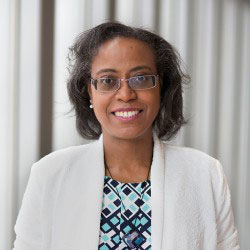 Trina Shanks
Trina Shanks
Associate Professor and Director of Community Engagement at the University of Michigan School of Social Work
Shanks has a PhD in Social Work from Washington University and a Masters in Comparative Social Research from the University of Oxford as a Rhodes Scholar. She has co-authored two books: “A Twenty-First Century Approach to Community Change: Partnering to Improve Life Outcomes for Youth and Families in Under-Served Neighborhoods” and “The Assets Perspective: The Rise of Asset Building and its Impact on Social Policy.” She has been a research investigator for the Saving for Education, Entrepreneurship, and Downpayment (SEED) demonstration and consults with several other child savings account initiatives. She was part of a team funded by Detroit’s Skillman Foundation over a ten-year period to engage with six Detroit communities as part of its Good Neighborhoods program. She also has conducted multiple evaluations of Detroit’s Summer Youth Employment Program—Grow Detroit’s Young Talent. Shanks currently serves as one of the national network co-leads for the Social Work Grand Challenge: Reversing Extreme Economic Inequality.
 Michael Sherraden
Michael Sherraden
George Warren Brown Distinguished University Professor and Founding Director of the (CSD) Center for Social Development at Washington University in St. Louis
Sherraden is the George Warren Brown Distinguished University Professor and founding director of the Center for Social Development (CSD) at Washington University in St Louis. CSD conceives and tests social innovations. Sherraden’s research on civic service — National Service (1982) and “The Moral Equivalent of War?” (1990) — contributed to the creation of AmeriCorps in 1993. His research on asset building — Assets and the Poor (1991), Inclusion in the American Dream (2005), Assets and Low Income Families (2008), and Asset Building Innovations and Strategies in Asia (2014) — has informed asset building policies in the United States and many other countries. CSD also supports bodies of work in inclusive housing, decarceration, race and social mobility, environment and social justice, and other areas. Among other awards, Sherraden has been a Fulbright Scholar and was named by Time magazine as one of the 100 most influential people in the world. By far his most rewarding work has been the very effective careers of graduate students he has trained.
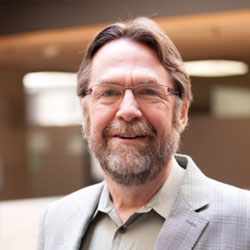 David Sieminski
David Sieminski
Policy Analyst, Office of Community Affairs, Consumer Financial Protection Bureau
Sieminski is currently the lead staff for the bureau’s asset building initiatives, including the tax-time savings and child savings account initiatives. Prior to joining the CFPB, Sieminski spent 15 years working in the asset building field in Seattle, Washington. He helped to start and managed a national individual development account program, a large scale free tax preparation and EITC campaign, and a nonprofit affiliated with a low-income community development credit union. Sieminski has over 30 years of experience in program management in both the private and non-profit sectors.
 Nick Sorensen
Nick Sorensen
Principal Researcher and Practice Area Director, American Institutes for Research (AIR)
Sorensen is a principal researcher at AIR, and director of the technology for teaching and learning practice area. His research is primarily focused on dropout prevention and helping struggling students succeed across the transition to high school. His work emphasizes the role of social psychological “mindset” interventions, strategies to support success in algebra and mathematics, and use of early warning systems to systematically identify, support and monitor at-risk students. Sorensen’s research uses improvement science approaches and experimental and quasi-experimental methods to develop and test preventive interventions. His work has been funded by the U.S. Department of Education’s Institutes of Educational Sciences, Office of Innovation and Improvement, Office of Elementary and Secondary Education, as well as private foundations, and is published in refereed journals, technical reports and policy briefs.
He currently serves as principal investigator on two IES-funded projects and co-directs two studies including an IES-funded cluster-randomized trial.
Prior to working at AIR, Sorensen conducted rigorous research on the educational benefits of diversity in higher education, including a collaborative nine-university randomized controlled trial assessing the efficacy of intergroup dialogue.
 Beth Tankersley-Bankhead
Beth Tankersley-Bankhead
Executive Director of Kansas City Scholars, Inc.
Tankersley-Bankhead previously served as the director of postsecondary initiatives in education at the Kauffman Foundation, has steered the development of Kansas City Scholars, Inc. (KC Scholars) with input from over 70 organizations in the Kansas City region, and has led its incubation at the Kauffman Foundation. KC Scholars is a 501(c) 3 college scholarship and student support program that serves low- and modest-income high school students and adult learners in a six-county, bi-state service area. When fully scaled, there will be at least 2,000 scholars in the program each year. KC Scholars includes a 529 College Savings Account and Match program, with awards made and accounts established at the end of ninth grade.
Tankersley-Bankhead previously served as the executive director of the Missouri College Advising Corps, a near-peer college advising model headquartered at the University of Missouri and worked there annd at the University of Central Missouri, Kappa Delta Pi, University of Nebraska-Kearney, and Eastern Illinois University.
Hannah Thomas
Associate/Scientist, Abt Associates
 Lynn Videka
Lynn Videka
Dean and Carol T. Mowbray Collegiate Professor of Social Work, University of Michigan
Videka has been the dean of the University of Michigan School of Social Work since August 2016. Shortly after her arrival, she engaged the faculty, staff, alumni, students and community partners in a strategic planning process to create a new strategic plan for the School, which will lead the entire social work field into the next generation of research, educational innovation and service. She has overseen the hiring of new faculty and the implementation of the Diversity, Equity and Inclusion Plan. Videka’s university service includes serving as a member of the Provost Search Committee, the Ford School of Public Policy Dean Search Committee, as well as the Health Science Deans’ Council and the Institute for Social Research Executive Committee.
Videka has a distinguished career in academic social work. Her research and teaching focus on families served by the child welfare system and persons with serious mental health disabilities. Her funded research totals over $11 million from agencies such as the Health Resources and Services Administration, the U.S. Children's Bureau, the National Institutes of Mental Health, and the New York State Office of Children and Family Services. Before arriving at Michigan, Videka was an extremely effective leader as a dean and vice president for research at the University at Albany, SUNY, and as dean of the Silver School of Social Work at NYU.
David Woodrow
Team Member, Community Link Foundation
 Facebook
Facebook Twitter
Twitter
